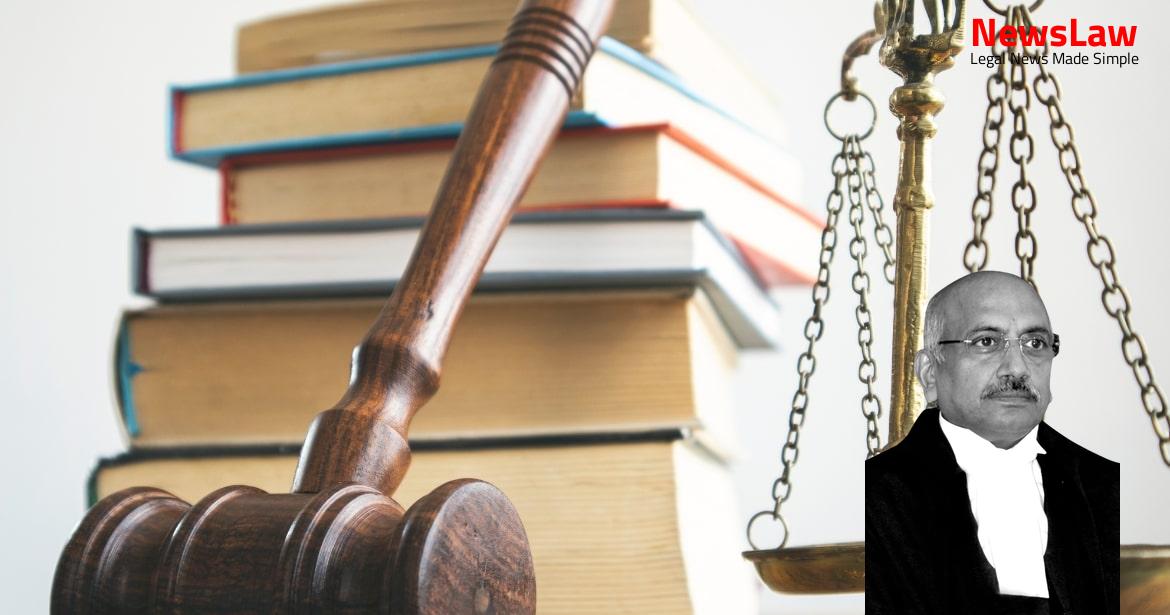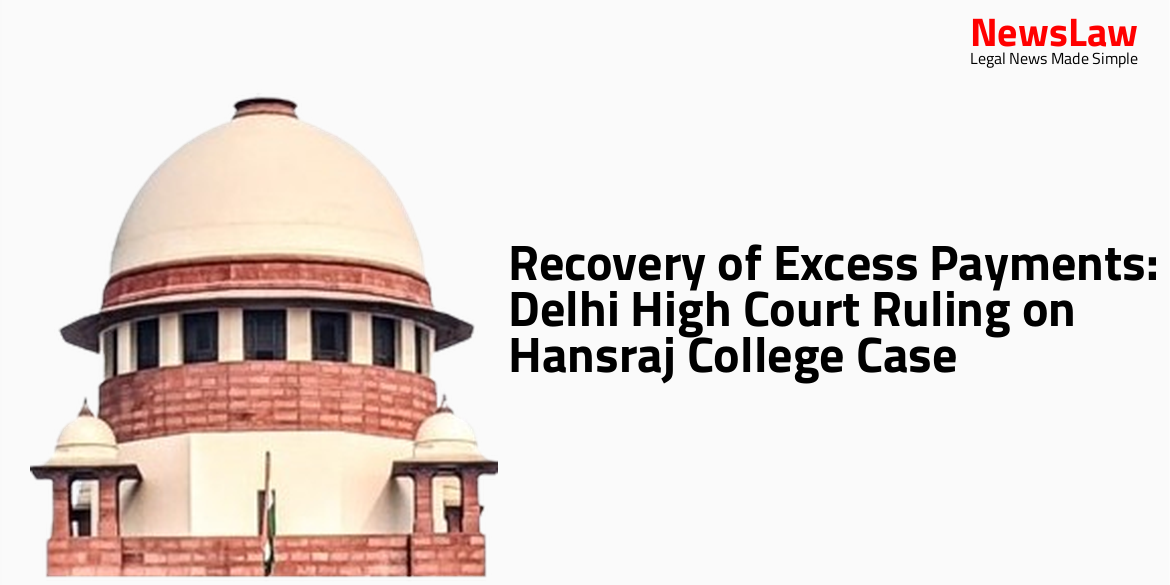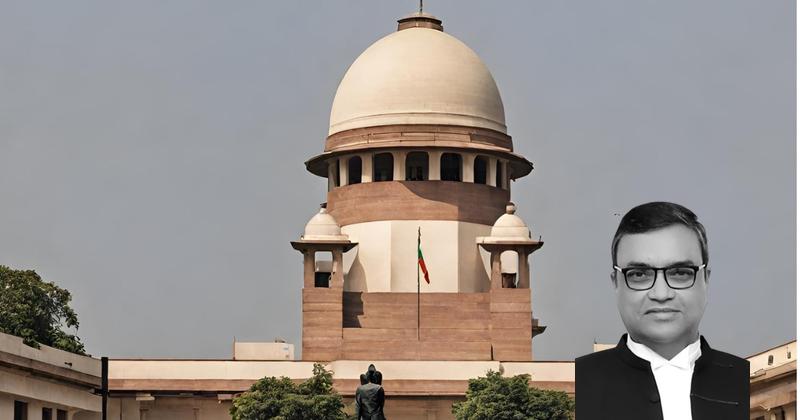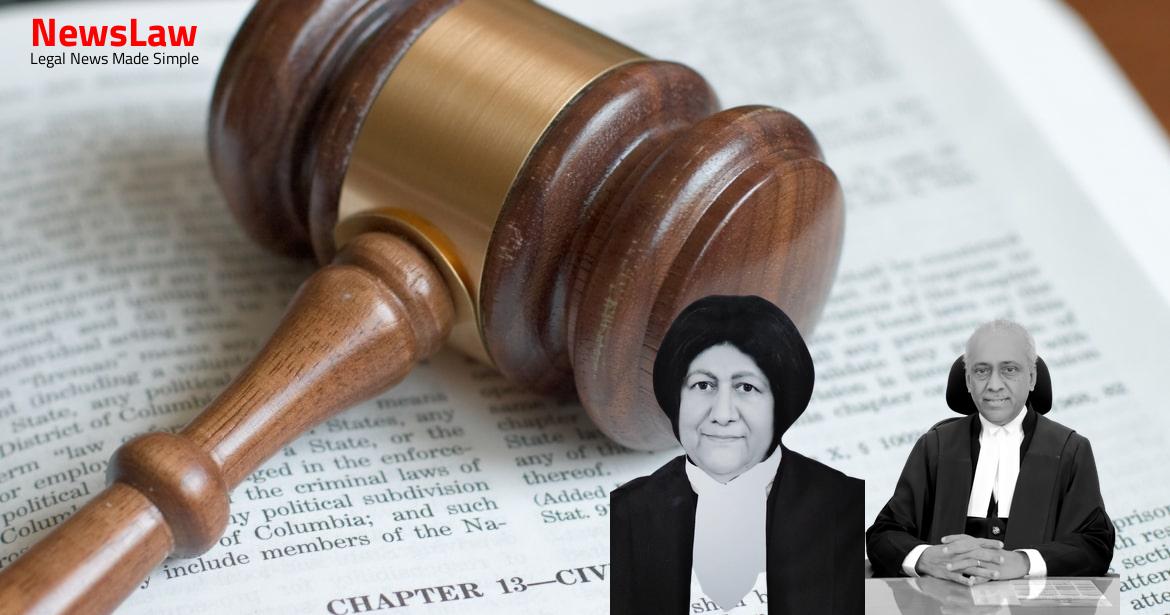Explore the detailed legal analysis by the court on the appealability of orders in arbitration cases. The court’s interpretation of the relevant sections of the Arbitration Act, particularly focusing on appealable and non-appealable orders, sheds light on the complexities of arbitration law. This analysis provides valuable insights for legal professionals navigating arbitration proceedings and underscores the importance of clarity in statutory interpretations.
Facts
- A certificate was issued under Article 133 read with Article 134A of the Constitution of India by the High Court of Delhi.
- The judgment in question was dated 04.12.2020.
Also Read: Limitation Period in Arbitration Disputes: Court’s Legal Analysis
Issue
- The issue at hand is whether a learned single Judge’s order refusing to condone the Appellant’s delay in filing an application under section 34 of the Arbitration and Conciliation Act, 1996 is appealable under section 37(1)(c) of the said Act.
Also Read: Interpretation of Royalty in Software Import Case
Arguments
- Petitioner argues that judicial intervention in arbitration process should be minimal as per section 5 of the Arbitration Act, 1996.
- Refusal to set aside an award can only be on merits and not on preliminary grounds.
- Petitioner relies on various court cases to support the argument for appeal in case of refusal to condone delay.
- Petitioner argues that certain High Court judgments do not state the law correctly and should be overruled.
- Petitioner emphasizes that dismissal on a preliminary ground is still a dismissal of the appeal when a right of appeal is granted by statute.
- The argument by the Respondent was centered around the Bombay High Court Division Bench judgment in Ramdas Construction Co. being the correct interpretation of the law.
- It was suggested to accept this interpretation and overrule judgments by other High Courts.
- Section 37 of the Arbitration Act, 1996 was cited, specifically focusing on 37(1)(c) regarding appealable orders.
- Citing the case of Union of India v. Simplex Infrastructures Ltd. (2017) 14 SCC 225, it was emphasized that whether delay in a case is condoned or not, the end result remains the same in terms of setting aside an arbitral award.
Also Read: Interpretation of Section 43B: Debentures vs. Interest Payment
Analysis
- The judgment discusses the interplay between different sections of the Arbitration Act, particularly focusing on section 37 and its implications.
- It differentiates between orders related to setting aside an arbitral award and those related to condoning delay in filing applications under section 34.
- The judgment emphasizes that the appellate powers under section 37 do not pertain to proceedings preceding the enquiry for setting aside an arbitral award.
- It mentions the significance of specific language in section 37(1)(c), highlighting the restriction to the aspect of delay in filing applications only.
- The interpretation of the law in this context is crucial, especially in differentiating between appealable and non-appealable orders in arbitration matters.
- The procedure of including the prayer for condonation of delay along with substantive relief in High Courts has been approved.
- Judgments of courts are not to be construed as statutes; Judges interpret statutes, not judgments.
- The Supreme Court remanded an appeal to the High Court for disposal after an order dismissing an application under Section 30 on the ground of delay.
- An appeal under Section 37 is maintainable against specific orders like refusal to set aside an arbitral award under Section 34.
- The effect test was applied by the High Court of Andhra Pradesh, stating that an order refusing to condone delay has the effect of finally disposing the original petition and is appealable.
- The court’s power to condone delay beyond thirty days is restricted by Section 34(3) of the Act.
- Judgments are not to be construed as statutory definitions, and all observations in them must relate to the context in which they were made.
- The Court was required to determine if the Civil Judge’s order dismissing the respondent’s application under Section 5 was revisable under Section 115 of the Code or appealable under Section 39 of the Arbitration Act, 1940.
- An application to set aside an award must comply with both sub-sections (2) and (3) of Section 34(1) of the Arbitration Act.
- Section 16(5) and (6) of the Arbitration Act, 1996 empower the arbitral tribunal to rule on its jurisdiction and allow a party aggrieved by the award to make an application for setting it aside according to section 34.
- The ‘effect doctrine’ is integral to the statutory provision for appeal under section 37 and section 37(1)(c), similar to Section 39 of the previous Act, specifies appealable orders related to arbitral awards.
- The Supreme Court referred to previous judgments and held that Section 39 of the previous Act listed appealable orders, including setting aside or refusing to set aside an award, and clarified the appeal provisions under the Act.
- Section 34(1) outlines the application process for setting aside an arbitral award, specifying the time limit for submission and the grounds for setting aside the award as per sub-sections (2) and (2A).
- The Court heard learned counsel for both parties and noted that the same proposition had been considered and declared by the Court in a previous case.
- The Court referenced the case of State of Himachal Pradesh vs Himachal Techno Engineers (2010) 12 SCC 210, where the legal position on the subject of limitation under Section 34 of the Arbitration Act was established.
- Based on the legal position declared by the Court, it was determined that the order passed by the District Judge, Nagpur, did not require any interference.
- The order of the Court did not impact or question the reasoning of the Bombay High Court in the matter.
- The limited right of appeal is provided under section 37 of the Arbitration Act, 1996.
- The court should not further limit such right by excluding appeals that are provided for within the language of the provision.
- The judgments in Radha Krishna Seth do not state the law correctly and are overruled.
- The Statement of Objects and Reasons of the Arbitration Act, 1996 aims to minimize the supervisory role of courts in the arbitral process.
- Section 5 of the Arbitration Act, 1996 restricts judicial intervention, except where provided in the Act.
- Section 37 of the Act provides for appeals, bringing the argument back to the starting point.
Decision
- An appeal under section 37(1)(c) of the Arbitration Act, 1996 is maintainable against an order refusing to condone delay in filing an application under section 34 of the Arbitration Act, 1996 to set aside an award.
- The appeal has been allowed, and the impugned judgment of the Division Bench is set aside.
- The matter is remitted to a Division Bench of the High Court of Delhi to determine the correctness of the Single Judge’s refusal to condone delay.
Case Title: CHINTELS INDIA LTD. Vs. BHAYANA BUILDERS PVT. LTD. (2021 INSC 76)
Case Number: C.A. No.-004028 / 2020



